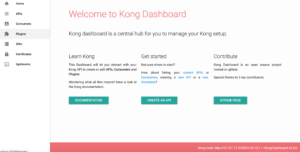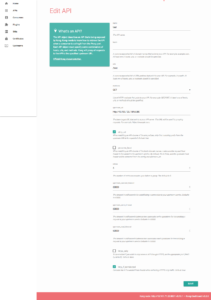Building docker images locally and running them on minikube locally
I’d like to share 2 tricks with you for locally testing docker images.
This post is docker focused.
Trick 1:
docker-compose
Pre requisites:
- You need to install docker.
docker-compose
Pre requisites:
- You need to install docker.
Lean on docker-compose for your local building and tagging of images.
When you think docker-compose you’re probably thinking that you can run your images locally as containers and test them locally.
However docker-compose can also be very useful to build and tag images locally:
Example:
Create a file called: Dockerfile
Add the following contents to the file:
1 2 | FROM nginx:latest EXPOSE 80 |
That’s it, we’ll test using this simple nginx image.
Create a file called: docker-compose.yaml
Add the following contents to the file:
1 2 3 4 5 6 7 | version: "3.9" services: nginx: image: localtest:v0.0.1 build: . ports: - "80:80" |
Run with docker-compose
1 | $ docker-compose up -d |
You can check that your container is running:
1 | $ docker ps |
Now check your images
1 | $ docker images |
You should now see your image built and tagged and available locally:
1 2 3 | REPOSITORY TAG IMAGE ID CREATED SIZE localtest v0.0.1 a1dcd6663272 xxx 133MB nginx latest 6084105296a9 xxx 133MB |
Now you can view this in your browser:
Go to: http://localhost:80
Trick 2:
minikube
Pre requisites:
- You need to install minikube.
Running this locally built image on minikube.
Let’s get your local environment ready to run the image on minikube.
Make sure your minikube is running:
1 | $ minikube status |
Run this command
1 | $ eval $(minikube docker-env) |
Run the container
1 | $ kubectl run localtest --image=localtest:v0.0.1 --image-pull-policy=Never |
View pods:
1 | $ kubectl get pods |
You should see your pod creating and running:
1 2 | NAME READY STATUS RESTARTS AGE localtest 0/1 ContainerCreating 0 4s |
1 2 | NAME READY STATUS RESTARTS AGE localtest 1/1 Running 0 27s |
If you don’t see that, don’t forget to check you ran “eval $(minikube docker-env)”.
Can you create a deployment.yaml file and run it? Sure! Just add the imagePullPolicy as Never:
Create a file called: deployment.yaml
Add the following contents to the file:
1 2 3 4 5 6 7 8 9 10 11 12 13 14 15 16 17 18 19 20 21 22 | apiVersion: apps/v1 kind: Deployment metadata: labels: app: localtest name: localtest spec: replicas: 1 selector: matchLabels: app: localtest template: metadata: labels: app: localtest spec: containers: - image: localtest:v0.0.1 name: localtest imagePullPolicy: Never ports: - containerPort: 80 |
Create the deployment on minikube (remember to check you’re connected to your minikube cluster):
1 | $ kubectl apply -f deployment.yaml |
1 | $ kubectl get deployment,pod |
1 2 3 4 5 6 | NAME READY UP-TO-DATE AVAILABLE AGE deployment.apps/localtest 1/1 1 1 63s NAME READY STATUS RESTARTS AGE pod/localtest 1/1 Running 0 14m pod/localtest-55888c9fc7-j8mkx 1/1 Running 0 63s |
Your pod will have a different name to “localtest-6c755dd5d-m4g5l“, remember to copy your pod and replace this value with your pod’s value.
You can test your newly deployed container:
1 | $ kubectl port-forward localtest-6c755dd5d-m4g5l 8080:80 |
Except this time we’ve portforwarded to port 8080
Go to: http://localhost:8080
(This was a bonus tip ^ you can test pods with port-forward without a service).
References:
Some other references
https://minikube.sigs.k8s.io/docs/commands/docker-env/
https://kubernetes.io/docs/concepts/containers/images/#updating-images





